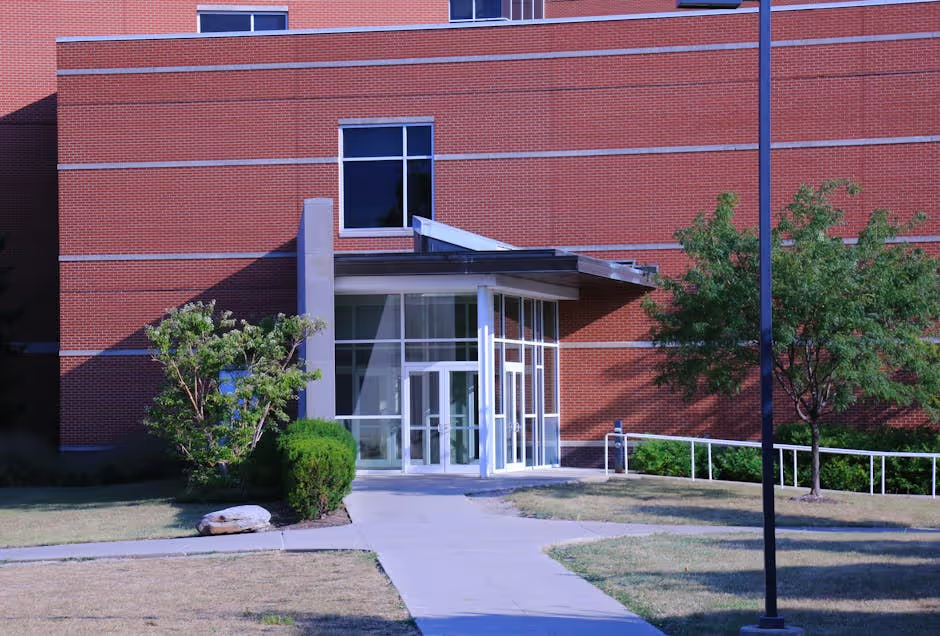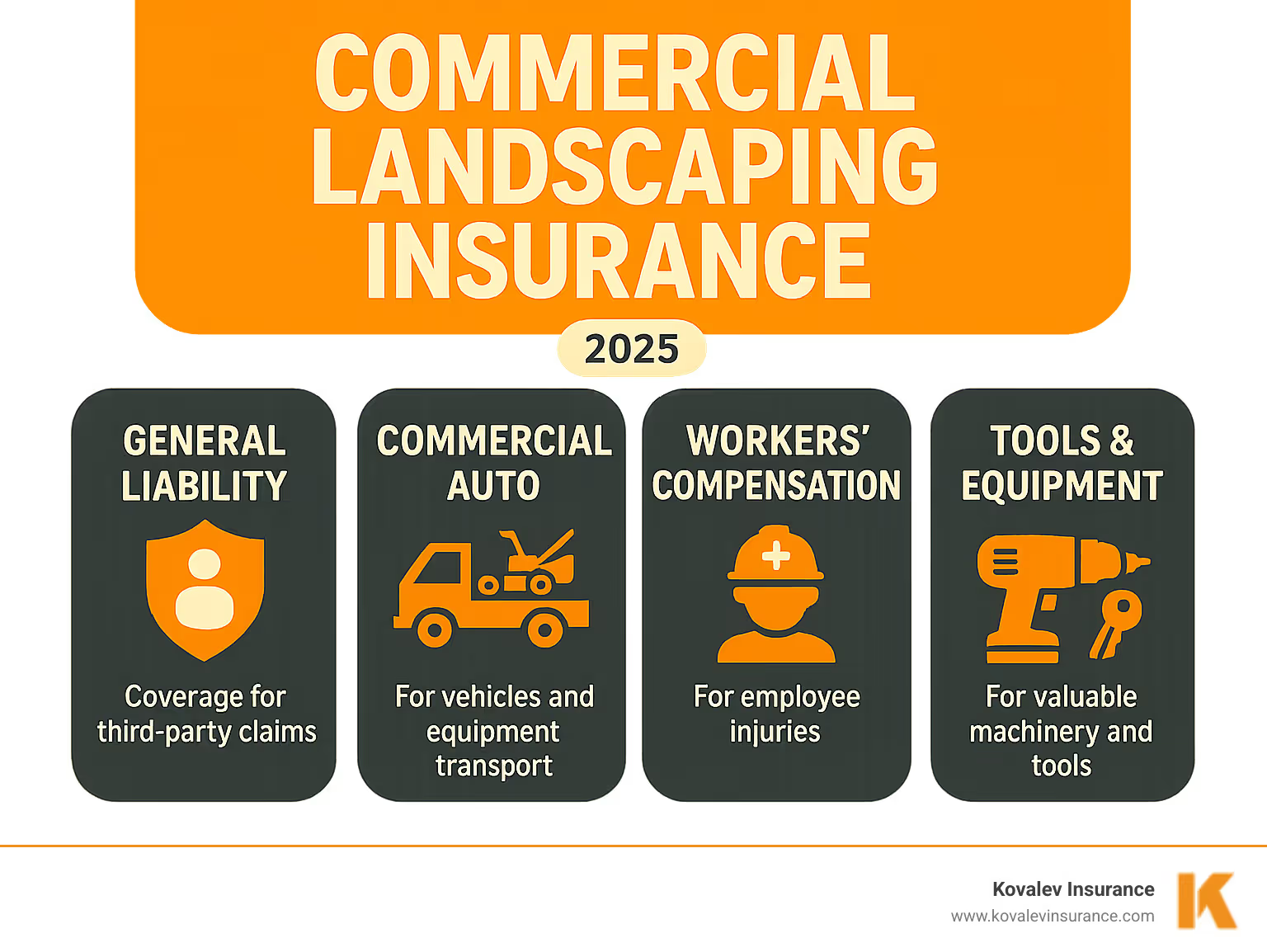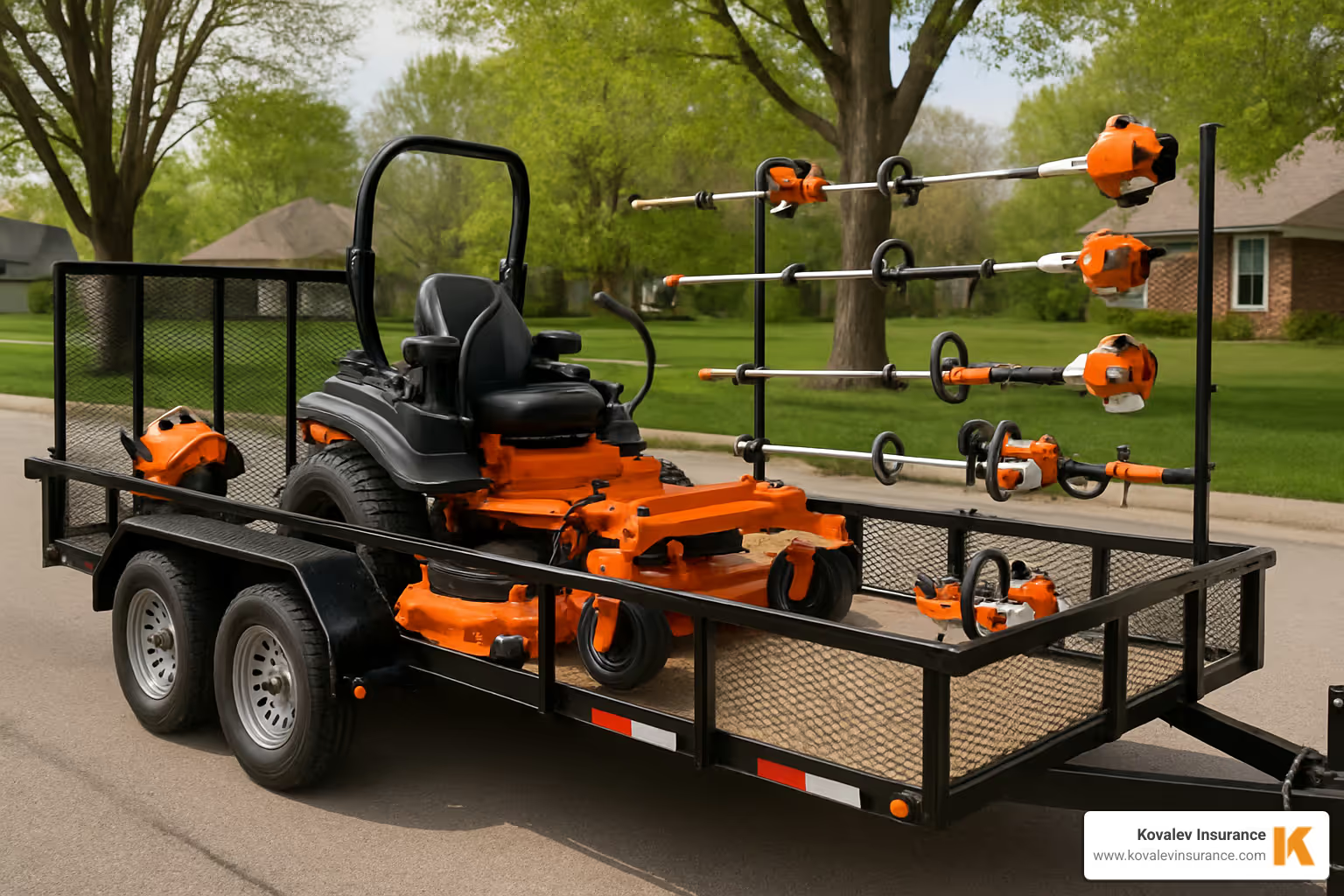Blog Content
24
Jul
2025

Commercial landscaping insurance is a suite of specialized coverages designed to shield your landscaping business from the unique and significant risks inherent in the trade. The work is physically demanding and involves heavy machinery, sharp tools, and potentially hazardous materials. According to the Occupational Safety and Health Administration, landscaping and groundskeeping workers suffer high rates of injuries from falls, overexertion, and contact with equipment. Without the right protection, a single incident could jeopardize your company's financial stability.
A comprehensive policy is built from several key components, each addressing a different area of risk:
Essential Coverage Types:
From the historic homes of Newton to the sprawling estates in Needham, a single accident—like a mower inadvertently hitting a hidden sprinkler line or an employee injuring their back while lifting heavy pavers—can escalate into a costly lawsuit. Furthermore, most municipal, commercial, or high-end residential clients in the Greater Boston area won’t even consider hiring you without proof of at least $1–2 million in liability coverage. After two decades of helping Massachusetts landscapers, I’ve seen how well-structured policies have saved hardworking business owners from financial ruin.

Changing a property is incredibly rewarding, but the daily operations of a landscaping business are fraught with risks. You work with sharp tools, heavy machinery, and potent chemicals—a combination of hazards that can easily lead to expensive accidents and lawsuits. Consider these common, real-life scenarios that could happen on any job:
One claim like these can exceed six figures. In densely populated suburbs such as Brookline or Wellesley, property values (and therefore claim amounts) run high. Add New England’s winter snow-and-ice removal services, and the risk multiplies.
Beyond protecting you from accidents, insurance is often a prerequisite for doing business. Massachusetts state law is unequivocal: if you have employees (even one part-time or seasonal worker), you must carry Workers’ Compensation insurance. Failure to do so can result in steep fines, stop-work orders, and even criminal charges.
On the client side, virtually all commercial, municipal, and high-value residential contracts will mandate that you carry general liability insurance, typically with limits of at least $1 million per occurrence and $2 million in aggregate. They will require a Certificate of Insurance (COI) as proof before allowing your crew on the property. Simply put: no COI, no job. Furthermore, if your services include pesticide or herbicide application, you may need specialized pollution liability coverage. Learn more at General Liability Coverage Massachusetts and Artisan Contractors Insurance Mass.

You've invested tens, if not hundreds, of thousands of dollars into your business. Consider the replacement cost of your essential equipment:
A single event like an overnight theft from your yard or a fire in your storage facility could wipe out years of hard work and investment. It's a common misconception that a homeowners insurance policy will cover business equipment. In reality, they explicitly exclude commercial property or offer minimal coverage (typically less than $2,500), which is why dedicated Commercial Property Insurance Mass and inland marine coverage are absolutely essential.
A solid insurance policy is like a custom-built toolkit for your business—it should have everything you need with no gaps or surprising exclusions. Most Massachusetts landscapers find that bundling several key protections into a Business Owner's Policy (BOP) or a customized package is the most effective way to save money and ensure seamless coverage. Let's break down the essential components.
This is the foundation of your protection. If your business operations result in injury to a non-employee or damage to someone else's property, CGL is what responds. It covers legal defense costs, settlements, and judgments for a wide range of incidents. For example, if you accidentally crack a client’s window in Newton or a visitor to their property trips over your equipment in Wellesley, CGL pays for the damages and medical bills. It also includes "completed-operations" coverage, which protects you even after the job is done—for instance, if a retaining wall you built a month ago collapses and damages the client's car. Find out more at Business Liability Insurance Mass.

Your personal auto policy explicitly excludes coverage for vehicles used for business purposes. Commercial Auto insurance is a must-have to cover your work trucks, vans, and the trailers you use to haul equipment. A policy can include liability coverage for accidents you cause, collision coverage for damage to your own vehicle, and comprehensive coverage for non-accident events like theft or vandalism. It's also crucial to include "hired and non-owned auto" coverage, which protects your business if an employee has an accident while driving their own car for a work-related errand. Compare your options at Best Massachusetts Commercial Auto Insurance.
As mentioned, this is legally required for any business with employees in Massachusetts, including part-time and seasonal hires. Workers’ Comp provides a critical safety net by paying for medical bills and a portion of lost wages for employees who suffer on-the-job injuries. This could be anything from a severe cut from a hedge trimmer to a chronic back issue from repetitive lifting. It also protects your business from being sued by an injured employee, as it is generally the exclusive remedy for workplace injuries. Implementing robust safety programs, as detailed in our Risk Management Services Massachusetts guide, can significantly lower your premiums.
Was your brand-new zero-turn mower stolen from a job site in Needham? Did a valuable chainsaw get damaged while in transit to a client in Natick? This is where Inland Marine insurance comes in. Despite its name, it has nothing to do with water; it covers property that is mobile or in transit over land. This policy protects your tools and equipment wherever the job takes you—on-site, in your truck, or at a temporary storage location. It can also be extended to cover rented or borrowed equipment. This vital coverage is often packaged with Artisans Contractors Insurance.
If your business goes beyond mowing and maintenance to include design, consulting, or specialized advice, you need E&O coverage. This protects you when a professional mistake, not a physical accident, costs your client money. For example, if you design a drainage system that fails and leads to basement seepage, or you recommend a type of expensive tree that is not suited for the local climate and dies within a year, E&O insurance would cover the client's financial losses and your legal defense.
While every policy is unique, most small-to-medium Massachusetts landscaping businesses can expect to spend between $650 and $2,200 per year for a basic general liability policy. More comprehensive packages that include commercial auto and equipment coverage typically average $1,500 to $3,000 annually. When you consider that a single liability lawsuit can easily exceed $100,000 in legal fees and settlements, insurance becomes one of your most cost-effective investments in business security.
For a growing business, a standard liability limit is $1 million per occurrence / $2 million aggregate. Final quotes are highly customized and depend on a variety of factors. You can get specific numbers by requesting Business Insurance Quotes Mass.
Insurance carriers evaluate your business's specific risk profile to determine your premium. Key factors include:
You can actively manage your insurance costs without sacrificing protection. Here are some effective strategies:
Absolutely, yes. Your risk of causing property damage or bodily injury exists whether you cut one lawn a week or manage ten crews full-time. A client can still trip over your equipment, or a rock from your mower can still break a window. Many clients, even for small jobs, will require proof of insurance before hiring you. Most importantly, without a business liability policy, a claim could force you to pay out of your personal assets, jeopardizing your home, car, and savings.
This is a critical distinction. Seasonal employees must be covered by your Workers’ Compensation policy, just like full-time staff. Subcontractors, however, are generally not covered. They are independent businesses and are expected to carry their own general liability and workers' comp insurance. It is crucial to obtain a Certificate of Insurance (COI) from every subcontractor you hire to ensure they are properly insured. Failure to do so could result in you being held liable for their mistakes or their employee injuries.
Think of it as "doing" versus "advising." General Liability covers physical damages and injuries your business operations do—like damaging property or causing a slip-and-fall. Professional Liability (or E&O) covers financial losses a client suffers because of professional advice or services you provide—like a faulty landscape design that leads to drainage problems. If you offer any kind of design or consulting, you likely need both.
Yes, this is highly recommended. Snow and ice removal carries a very high risk of slip-and-fall claims, which can be extremely expensive. While your general liability policy may offer some coverage, many insurers require a specific endorsement or a separate policy for snow plowing operations. Be sure to discuss this with your agent before you start offering these services to ensure you are not left with a major coverage gap.
Standard policies have exclusions. Common ones include intentional damage caused by you or your employees, normal wear and tear on your equipment, cyber attacks and data breaches, and catastrophic events like floods or earthquakes (which require separate policies). High-risk activities like crane operations or work on protected wetlands may also be excluded unless you have a specific endorsement. Always review your policy's exclusion list carefully.

Your skill and hard work are what make your clients' properties beautiful, but a comprehensive commercial landscaping insurance policy is what keeps your business safe and prosperous. A well-designed package—including general liability, commercial auto, workers’ comp, tools & equipment, and professional liability—creates an essential safety net. This protection gives you the peace of mind to focus on what you do best: growing your business and creating stunning Massachusetts landscapes.
At Kovalev Insurance, we have helped hundreds of landscaping and artisan contractors from Newton to Natick and across the Greater Boston area. We specialize in crafting custom, affordable protection that addresses your specific risks without unnecessary costs. Don’t wait for an unexpected accident to find a critical gap in your coverage.
Ready to safeguard your business and secure its future?
Get a customized quote for your Artisan Contractors Insurance in Mass
X